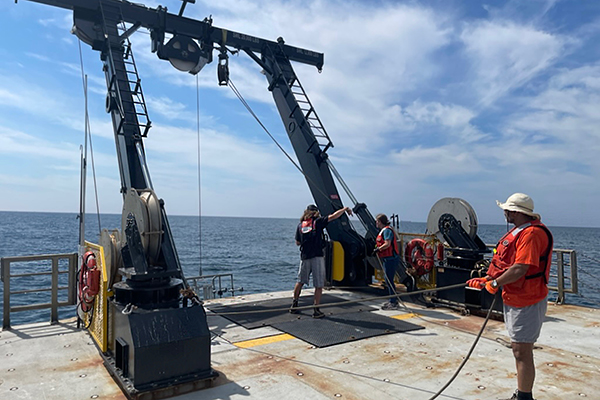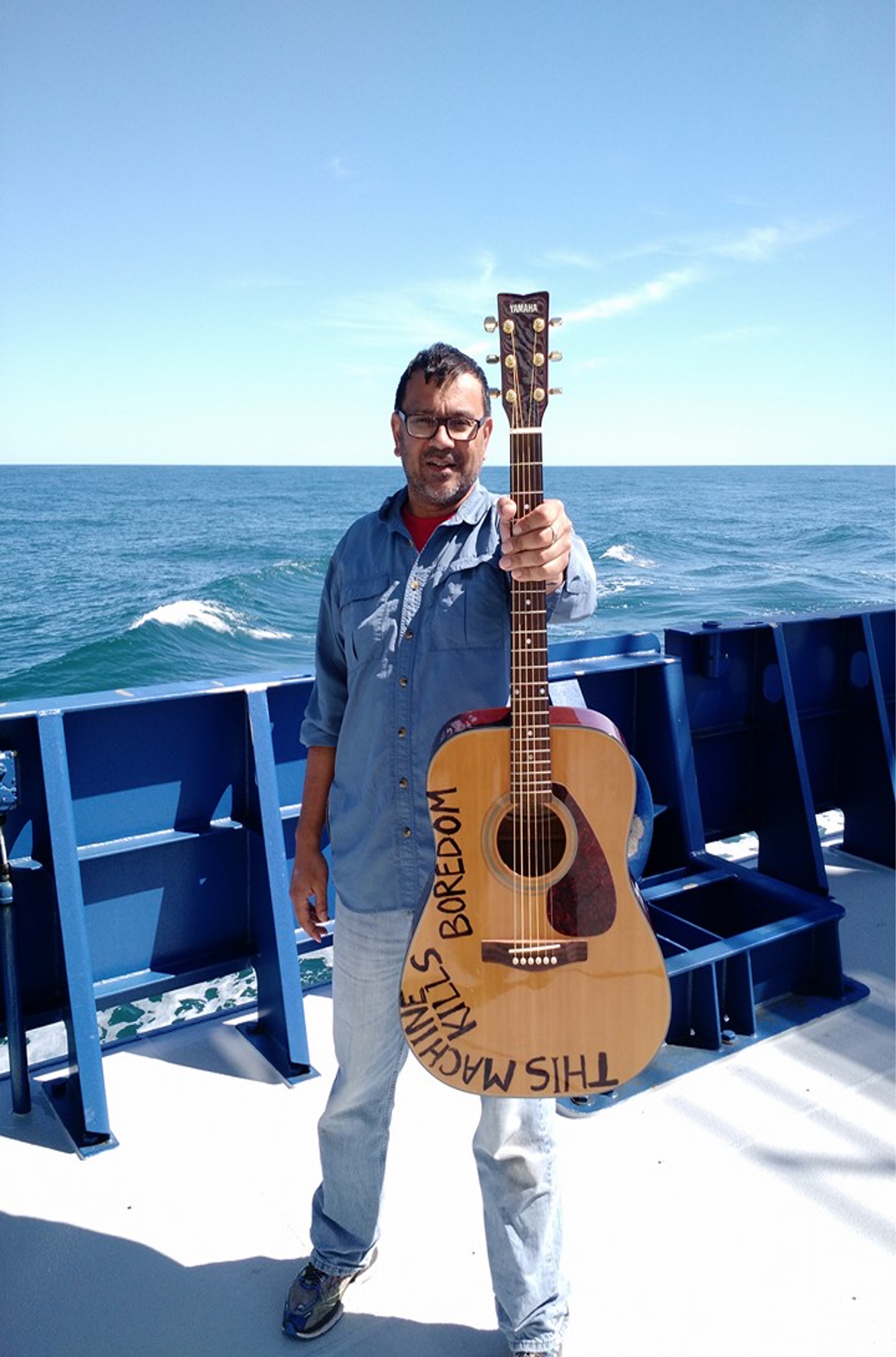Dr. Siddhartha Mitra returns home to VIMS as Associate Dean for Academic Affairs
For Dr. Siddhartha Mitra PhD '97, becoming Associate Dean for Academic Affairs for William & Mary’s School of Marine Science feels like coming home. Since earning his PhD at the school in 1997, Mitra has been busy building a research lab and serving in a leadership role at East Carolina University, but he never forgot the sense of community and belonging that was an important element of his time as a student in the School of Marine Science. He remembers fondly community events such as the fall pig roast, when graduate students roasted a whole pig for the VIMS community, and Friday seminars that often ended in long conversations over billiards at Page House.
“We’re really excited to welcome Sid ‘home’ to VIMS,” said VIMS Dean & Director Dr. Derek Aday. “Sid has the right combination of scientific expertise in coastal sciences and deep passion for the student experience to be a great new leader for our community. I’m enthusiastic about the opportunity to work with him and grateful that we were able to recruit him back to the place it all began.” Mitra is an organic geochemist, or as he likes to put it, “I use organic molecules to tell stories.” He credits his mentors, Dr. Linda Schaffner and the late Dr. Rebecca Dickhut, with exceptional training and mentorship that gave him the skills to tackle almost any natural science question across spatial and temporal time scales, provided an organic molecule is involved. His dissertation research focused on polycyclic aromatic hydrocarbons (PAHs) in the Elizabeth River, Virginia. More recent research reached a mainstream audience when it was featured in a Final Jeopardy question in 2021. In that study, Mitra and his co-authors present evidence that in approximately 1650 BCE, the Middle Bronze Age city of Tall el-Hammam was destroyed by a cosmic airburst, and that the destruction of Sodom and Jericho in the Old Testament of the Bible may have been a narrative description of that very event.
Mitra is an organic geochemist, or as he likes to put it, “I use organic molecules to tell stories.” He credits his mentors, Dr. Linda Schaffner and the late Dr. Rebecca Dickhut, with exceptional training and mentorship that gave him the skills to tackle almost any natural science question across spatial and temporal time scales, provided an organic molecule is involved. His dissertation research focused on polycyclic aromatic hydrocarbons (PAHs) in the Elizabeth River, Virginia. More recent research reached a mainstream audience when it was featured in a Final Jeopardy question in 2021. In that study, Mitra and his co-authors present evidence that in approximately 1650 BCE, the Middle Bronze Age city of Tall el-Hammam was destroyed by a cosmic airburst, and that the destruction of Sodom and Jericho in the Old Testament of the Bible may have been a narrative description of that very event.
At East Carolina University, Mitra was responsible for revamping the university’s Coastal Resources Management PhD program. Under his leadership, the expanded and renamed Integrated Coastal Sciences PhD program saw increased enrollment and trained students to tackle a wide range of issues related to coastal sciences. He is excited about VIMS’ shift from traditional academic departments to sections, citing the importance of breaking down silos to tackle pressing coastal and estuarine challenges. “At the end of the day, as an environmental scientist, you come to realize that people will keep doing the things they do despite conclusions based on the natural sciences. To really respond to environmental crises in coastal areas, the next generation of scientists must understand human dimensions and economics as they apply to the coast.” To that end, Mitra is thrilled that the School of Marine Science faculty includes an economist and an anthropologist, but he says that “along with adding those into our curriculum, we have to go one step beyond and train students and faculty to collaborate outside of their comfort zone.”

A five-pillar model of education is at the heart of Mitra’s philosophy as associate dean. “The five things you really need are mentorship, rigor, scholarship, diversity, and assessment. You’ve got to have those things for a program to succeed, to evolve, to thrive. At different times, one may become more important than others but ultimately, an institution must effectively manage all five.” One of Mitra’s goals as associate dean is to create more mentorship training opportunities for faculty; he’s already working to launch a new mentoring resource. “I also think students need to understand that graduate school is a critical time to grow and develop as a mentee, and there are some guidelines for that. I’m lucky to have an assistant dean who believes strongly in the importance of mentorship and this year’s new student orientation will include additional sessions on mentorship.”
Mitra replaces Dr. Linda Schaffner, who stepped down earlier this year after more than a decade as Associate Dean. In Mitra’s own words, “I have big shoes to fill. Linda’s commitment to graduate education is unparalleled.”
When he’s not busy telling stories with organic molecule protagonists or mentoring students, you can find Mitra playing the acoustic guitar, cooking, or tending his garden of native plants.
